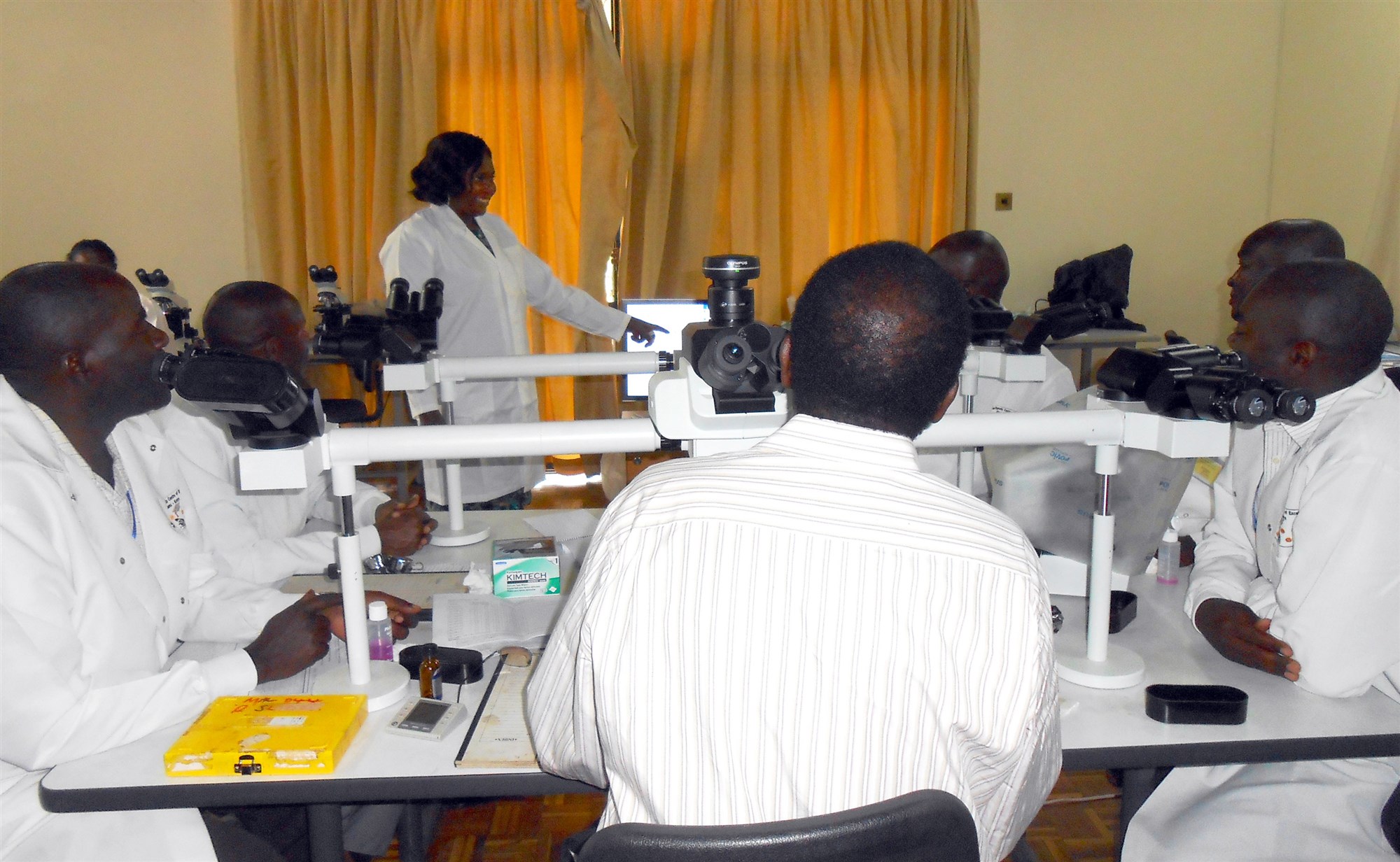During a recent trip to Kenya by U.S. Army Africa’s Commanding General Maj. Gen. Patrick Donahue II, the U.S. Embassy Nairobi provided him with several briefings, and among them was one given by Dr. (Col.) Tom Logan, Commander of the U.S. Army Medical Research Unit-Kenya (USAMRU-K).
This small unit was established in 1969 at the invitation of the Kenya Government to study African Sleeping Sickness in western Kenya. USAMRU-K was permanently established in 1973 and is a Special Foreign Activity of the Walter Reed Army Institute of Research (WRAIR). It is composed of 12 U.S. military officers, four locally engaged staff and approximately 550 locally contracted personnel. USAMRU-K Headquarters is located in Nairobi, Kenya on the campus of the Kenya Medical Research Institute and is one of five U.S. Department of Defense overseas research laboratories. The primary operational sites in Kenya for USAMRU-K include Nairobi, Kericho Field Station and Kisumu Field Station.
The USAMRU-K mission focuses on developing and testing improved means for predicting, detecting, preventing and treating infectious disease threats to the U.S. military and Kenya. It conducts surveillance, training, research, and responds to emerging infectious disease threats. It partners with the Kenya Government to execute the President’s Emergencey Plan for AIDS Relief (PEPFAR) and the President’s Malaria Initiative (PMI). Finally, it supports the AFRICOM Commander’s health related theater security cooperation activities through engagement with other nations. USAMRU-K engages U.S. and Kenyan military, public and private health and research agencies, non-governmental organizations, and academia in collaborative research and surveillance projects to identify infectious disease threats of military and public health importance and to develop and evaluate interventions and products to mitigate those threats, many of which enhance host-nation capacity to address the infectious disease threats of mutual interest.
Although the USAMRU-K Headquarters is a small organization with a large responsibility. It coordinates operations with the U.S. Embassy, Senior Defense Official/Defense Attaché which includes the Kenya U.S. Liaison Office (KUSLO)/Defense Attaché Office (DAO), U.S. Africa Command (AFRICOM), USARAF, the Centers for Disease Control (CDC), U.S. Agency for International Development (USAID), Kenyan Defense Forces (KDF) and numerous Kenyan Ministries.
The USAMRU-K has different offices focusing several programs or specialities. The Department of Military to Military Activities (M2MA) and DoD President’s Emergency Plan for AIDS Relief (DoD PEPFAR) program are based in Nairobi, Kenya. The focus of this program encompasses HIV/AIDS prevention, care and treatment, health readiness in the Kenyan military and research on medical issues of mutual interest. The three USAMRU-K DoD PEPFAR programs are located in the South Rift Valley (Kericho), Nyanza Province (Kisumu) and in Nairobi for close collaboration with the Kenyan Defense Forces. The KDF PEPFAR program consists of over 60 staff personnel that implement HIV prevention, care and treatment activities for all KDF personnel at nine Comprehensive Care Clinics and more than 30 satellite clinics.
The USAMRU-K Kericho Field Station based in the southern Rift Valley Province houses the research activities of the U.S. Military HIV Research Program (USMHRP) and the Enterics Surveillance Program. USAMRU-K HIV research program’s primary mission is contributing to the development of a globally effective HIV-1 vaccine to protect U.S. military service members, allied forces, and the world through evaluating HIV vaccine candidates in clinical trials. The Enterics Surveillance Program is a state-of-the- art microbiology lab engaging in various studies including research to enhance future US troop readiness through the reduction of gastro-intestinal disease.
